HeroRAT Target Scents
APOPO’s HeroRATs are trained to detect the scent of five key wildlife products, all commonly trafficked and critically important to conservation efforts. These target scents are tied to some of the most endangered species on earth — and some of the world’s most profitable illegal trades.
Elephant Ivory
Both African and Asian elephants are poached for their tusks, which are made of ivory. In African elephants, both males and females have large tusks, while in Asian elephants, typically only males grow significant tusks. Female Asian elephants may have small tusks or none at all.
Numbering around 1.3 million in 1979, African elephant populations have dropped to around 415,000 according to the most recent estimates from the IUCN African Elephant Specialist Group (AfESG). The species is still being poached faster than it can reproduce. Between 2007 and 2017, 403 metric tons of ivory were seized globally — representing the deaths of an estimated 54,000 elephants.(ETIS 2018).
Countries involved in the trade of elephant ivory: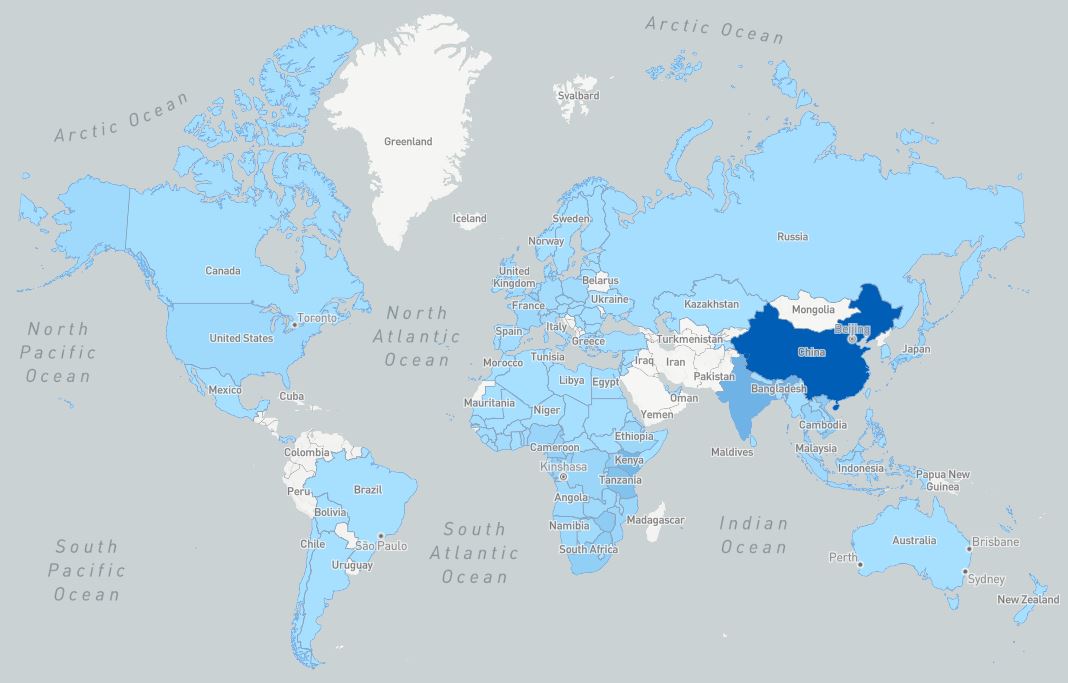 Map from Wildlife Trade Portal seizure reports
Map from Wildlife Trade Portal seizure reports
Pangolin Scales
Pangolins are the most trafficked mammals in the world (Goode 2016). Covered in large, protective keratin scales, they are targeted primarily for use in traditional medicine. Their meat is also consumed locally as bushmeat and internationally as a delicacy.
Despite an international trade ban, trafficking persists across at least 159 known smuggling routes (TRAFFIC). Over the past decade, more than one million pangolins have been poached, placing all nine species at risk of extinction (Incorvala 2023). In 2021 alone, 23.5 tonnes of pangolin product were trafficked.
Countries involved in the trade of pangolin scales: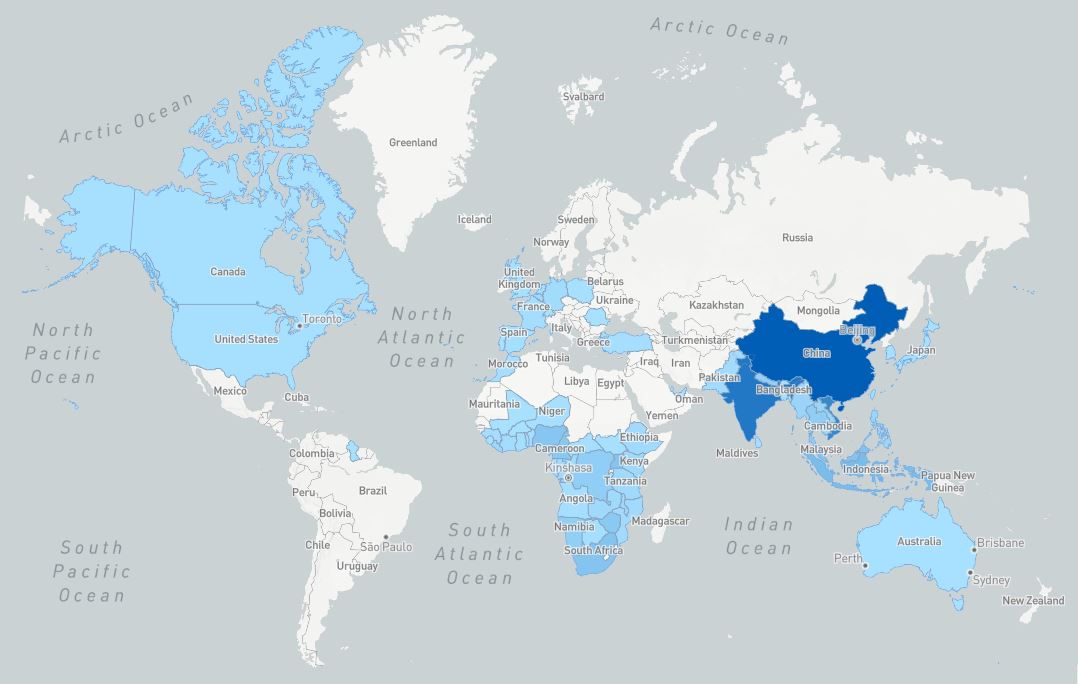 Map from Wildlife Trade Portal seizure reports.
Map from Wildlife Trade Portal seizure reports.
Rhinoceros Horn
Rhinos are poached for their horns, highly prized in traditional medicine despite no proven medical benefits. African rhino populations have declined significantly largely due to poaching and habitat loss. According to Save the Rhino, more than 8,000 African rhinos were poached in the first decade of the crisis (beginning around 2008), representing losses of approximately 20% of the rhino population by 2018–2020.
In 2022, at least 561 African rhinos were illegally killed for their horns. South Africa, home to the majority of the world’s rhinos, lost 448 rhinos that year — an average of more than one rhino per day to poaching.
Only about 3,000 Asian rhinos remain in the wild. At the current rate of decline, wild rhinos could be extinct by 2036 (Haas 2015). Rhino horn is often smuggled by air, and in 24% of recorded 2017 seizures, it was found trafficked alongside other wildlife products (TRAFFIC).
Countries involved in the trade of rhino horn: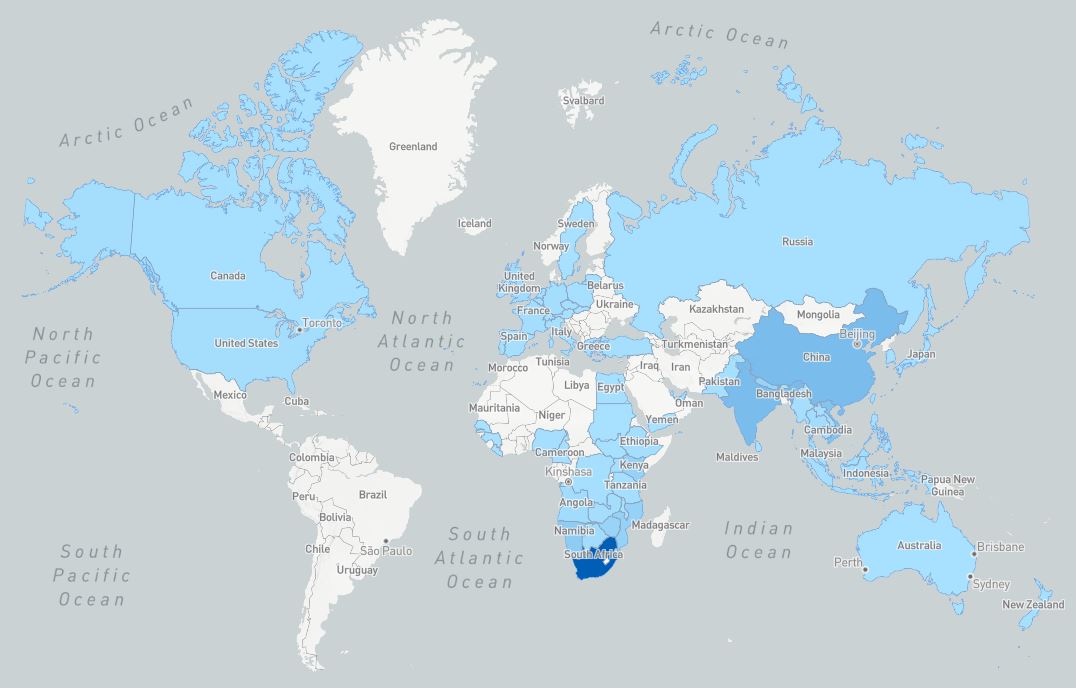 Map from Wildlife Trade Portal seizure reports.
Map from Wildlife Trade Portal seizure reports.
Giraffe Hide, Hair, and Bone
Giraffe populations have declined by 40% over the past 30 years, and some subspecies in north and west Africa have seen declines of up to 77% since 1985 (USFW 2024). While giraffes are protected under international law through CITES, they are still poached for bushmeat, hides, and bones, which are trafficked to international markets. Giraffe hide is used for leather and taxidermy, bone for faux ivory carvings, and hair in jewelry and souvenirs.
Countries involved in the trade of giraffe products: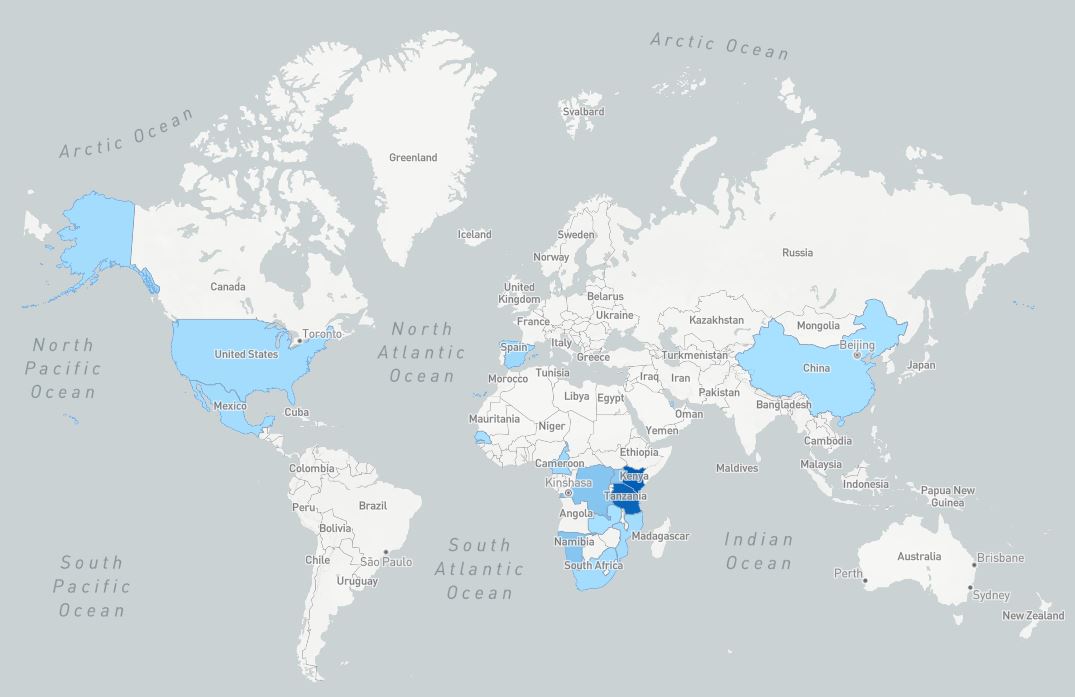
Map from Wildlife Trade Portal seizure reports.
Ebony (African Blackwood)
African blackwood is sourced from the Mpingo tree, native to Tanzania, Kenya and Mozambique. It is one of the hardest and densest woods in the world, making it prized for musical instruments, carvings, and decorative inlays.
Because high-quality timber is rare, up to 90% of harvested wood is discarded during milling — the illegal trade is especially wasteful. Mature Mpingo trees take 60–100 years to reach harvestable size, contributing to their vulnerability. African blackwood is illegally traded and frequently smuggled to markets in the United States, Spain, and China, where demand for luxury wood products remains high (Wildlife Trade Portal).
Countries involved in the trade of African blackwood:
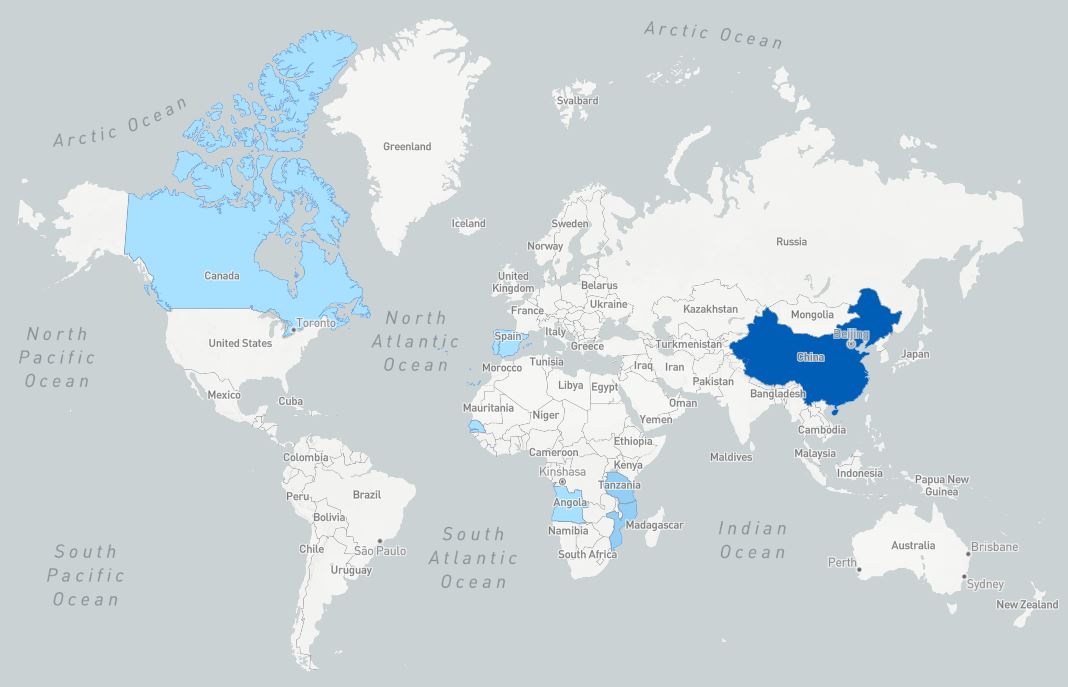 Map from Wildlife Trade Portal seizure reports.
Map from Wildlife Trade Portal seizure reports.
